Last March, the Woodworker’s Journal Weekly asked for project submissions to share what we’ve been working on during the pandemic stay-at-home. I submitted photos of a few of the hundreds of items that I’ve been building to be sold at our annual holiday “Crafts for a Cause” sale for education and community development projects in Kenya.
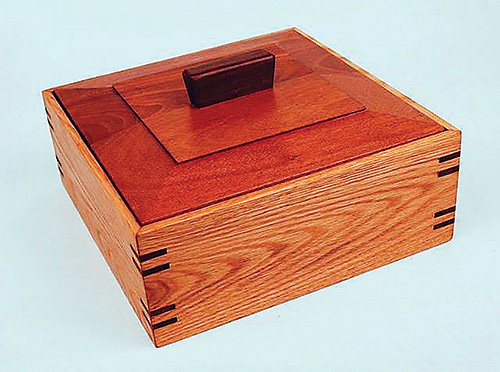
Fifteen years ago, my wife Jean and I read an article about education becoming free in Africa. Schools became overcrowded, often with more than 100 students in a class. We contacted Michael Kremer, a Harvard economics professor and subsequently a Nobel Prize recipient, about how we could help. He said that donating money to sponsor a teacher would be beneficial, which, as teachers, we were very happy to do.
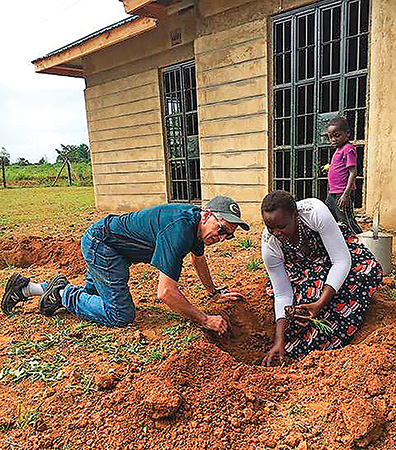
Our Kenyan contact person, Helen Mukanda, told us of the many needs of the Nambale community in Busia County. In 2010 we decided to start a 501(c) (3) nonprofit called Grow Against Poverty and to raise money through the sale of my woodcrafts. Since then we’ve raised over $71,000 selling salad bowls, cutting boards, toys, tea boxes, candleholders and other works in wood.
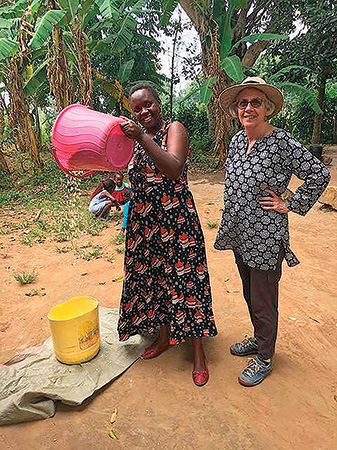
Ideas for the programs and projects come from community residents, school staff, Helen and other volunteers, who see education as an important way out of poverty. Using Grow Against Poverty proceeds, we’ve implemented school projects and programs. Classrooms have been built, and we’ve outfitted a 12-station computer room. We started a meal program, which is now community-funded, and we’ve planted school organic gardens as well as tree seedling nurseries. These will soon become self-sustaining.
Pedal Power Program
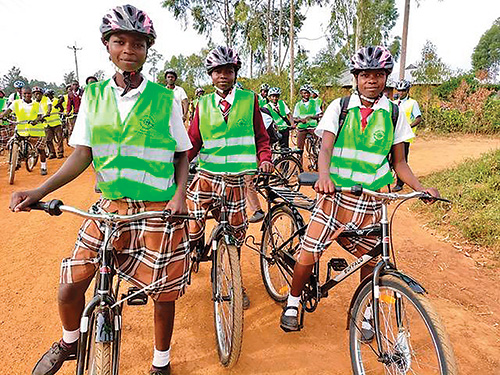
A particularly effective program that was started two years ago is a school bicycle transportation program called “Pedal Power for Kenyan Education.” Many students walk over 5 miles each way to and from high school, often needing to wake up at 4 a.m. to make their morning classes. Grow Against Poverty has provided St. Mary’s School with 50 bicycles, helmets, safety vests and tool kits to loan to students, most from subsistence farming families living on less than a dollar a day.
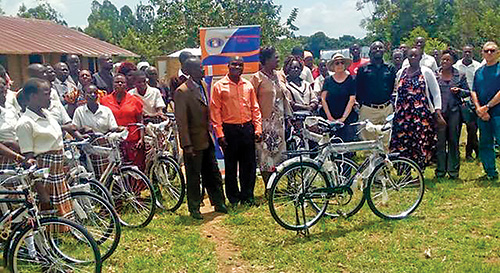
With a reduced commuting time, students have more time for studying, caring for siblings and working on family farms. Attendance, promptness and academic performance have all improved through this bicycle program. Seven recent graduates have gone on to university, compared to four the previous year. This success has brought requests from five other schools for similar programs. We are starting to raise money to furnish each school with 50 bicycles and accessories.
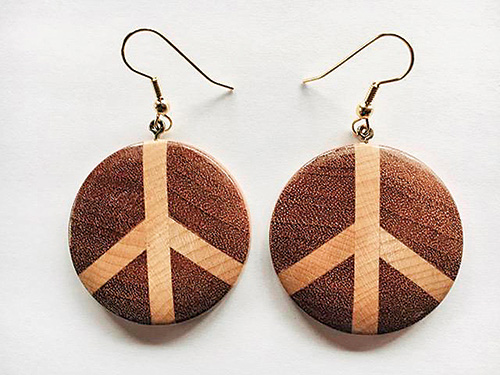
The immediate focus of Grow Against Poverty is the predicted famine that could affect this region because of the current COVID-19 pandemic. We’ve sent funds to purchase hoes called jembes and other tools and supplies for 100 farm families so that students who are home from school can provide extra help with food production.
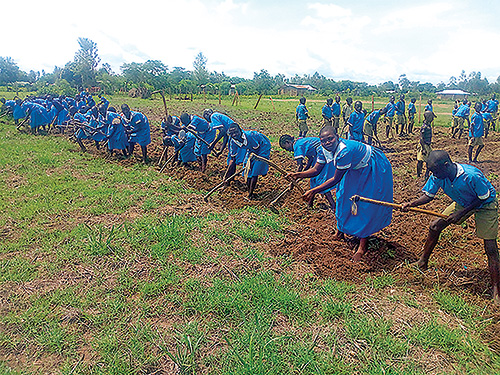
Charitable donations of wood and other supplies for my woodcrafts make our fundraising for these Kenyan projects possible. Local businesses have given me woods such as oak, cherry, walnut, mahogany, teak and Brazilian ebony for this endeavor. A local hardware store has supplied glue and finishes. Online businesses have donated finishes, veneer and inlays, too. I supply whatever else is needed as well as pleasurable time in the shop with a hobby that has the extra benefit of helping others.
– John Roccanova
To find out more about Grow Against Poverty’s programs, visit: www.globalgiving.org/projects/pedal-power-for-kenyan-education and www.growagainstpoverty.wixsite.com/kenya.
The post Grow Against Poverty appeared first on Woodworking | Blog | Videos | Plans | How To.
from Woodworking | Blog | Videos | Plans | How To https://ift.tt/34eQAcL
没有评论:
发表评论